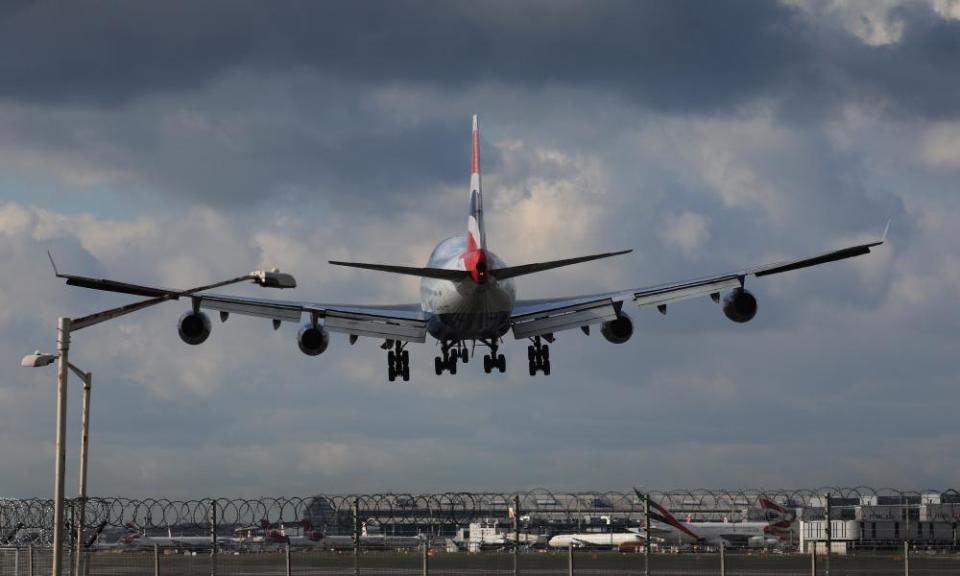The Guardian view on a defeat for Heathrow’s third runway: a welcome precedent

It’s not often that climate activists get to punch the air. News about the environment is alarming far more frequently than it is cheering. So campaigners were understandably jubilant on Thursday when the court of appeal issued its surprise ruling that the government’s plans to build a third runway at Heathrow are illegal.
Not only does the ruling make it increasingly unlikely that the controversial project, approved by the House of Commons in June 2018, will go ahead (Heathrow has said it will appeal, while the government has said it will not). The judges set an extraordinary precedent. This is because they made their ruling on grounds that the policy of expanding the airport is incompatible with commitments made by the government in the Paris climate agreement. While the law says that national policy must take account of the UK’s climate commitments, the 2018 airport statement didn’t.
The ramifications reach beyond these shores. The case brought by the legal charity Plan B, and others including Friends of the Earth, Greenpeace and the mayor of London, has shown that with the right legislation in place, international climate agreements can have a direct bearing on domestic decision-making. But the biggest impact will be in the UK, where it has already given a boost to activists despondent at the government’s lack of preparedness for Cop26, the hugely important round of UN climate negotiations it will host in November. Given Boris Johnson’s earlier opposition to Heathrow expansion, it is possible, if not yet certain, that he will take the opportunity offered by this week’s court ruling to abandon the third runway once and for all.
Beyond the immediate significance of Heathrow, particularly to the west London residents who have consistently opposed it, the judgment highlights a deeper tension between economic development and climate policymaking. We are in a climate emergency. This legal ruling shows that under the law, ministers cannot default – when it suits them – to business as usual. As Lord Deben, the chair of the advisory Committee on Climate Change, put it: “The fact is, it is the law that we have to keep our emissions down.”
There is probably no area in which economic and environmental imperatives are harder to reconcile than aviation. Currently responsible for around 2% of global emissions, its share is predicted to grow fast. Aviation emissions rose by 32% between 2013 and 2018, and in the UK are expected to overtake all other sources by 2050. While new batteries, sustainable fuels and new engine technology are all anticipated, the prospect of anything approaching “green” flying remains remote.
That’s why the government’s official advice is that aviation should be allowed to buck the trend of decarbonisation, and to grow by up to 25% between now and 2050. But even if this is accepted – despite the risks – ministers must address the question of where this growth will take place, while working to reduce demand via new charges such as a frequent-flyer levy. While there is spare capacity in some places, airports from Aberdeen to Southampton have plans to expand passenger numbers by 59%, far beyond the official guidance. Such plans are not compatible with the UK’s climate goals.
Britain needs a national aviation plan to weigh the demands of different regions against each other. But nowhere must boosting air traffic be viewed as a shortcut to prosperity. In an era of climate breakdown, there is really no option other than to seek alternative routes to success.

